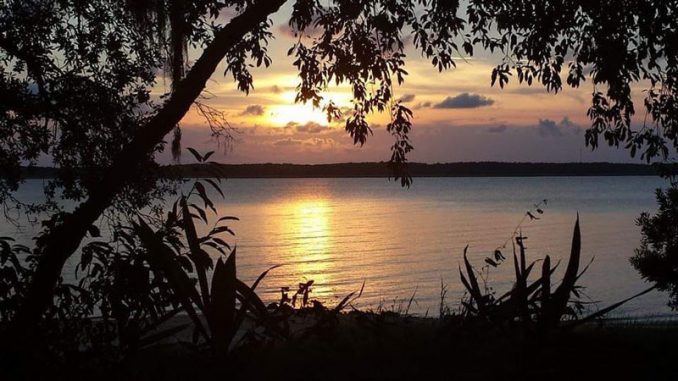
ST. HELENA ISLAND—Since the 1920s, a large tract of land on the scenic sea island of St. Helena has been a treasured retreat for the descendants of 47 Black farmers who originally purchased it.
The area, known as Lands End Woodland, includes marshland, lush forest, and a stretch of shoreline along the Port Royal River.
It’s a place where the heirs can go to hunt and fish; gather for picnics, family reunions or other family celebrations; or to just spend time with nature and reflect on what the property meant to their ancestors.
Tom Davis, an attorney and state senator who is also a member of St. Peter Church in Beaufort, recently visited the area and reflected on how, nearly 30 years ago, he worked with the heirs to make sure the land they treasured would not be lost to developers.
Up and down the coasts of Georgia and South Carolina, thousands of acres of prime property once owned by African-Americans has been lost because of one simple fact: the original owners died without wills. Large stretches of land on Hilton Head and Daufuskie islands here in South Carolina are prime examples.
How was so much valuable property lost so quickly? Davis said the process was deceptively simple. When a landowner — or group of owners — died without wills, the property would pass undivided to their heirs. Developers hungry to grab up coastal property as quickly as possible would research who the heirs were and contact them.
Often, heirs who lived in the Northeast or other areas of the country would not even know they had a claim to the property. The developers would offer quick buy-outs to just a few of these heirs, then use their minority ownership to take over the rest.
“If you own a fractional interest of a property, you can bring an action in court and have the property sold on the courthouse steps to the highest bidder,” Davis said.

The property that eventually came to be known as the Lands End Woodland Club was purchased by the original 47 owners for $3,200 in 1920.
Their descendants were determined to hold on to their beloved property. Over the years, families and members of the community would hold fish fries and sell livestock to help raise funds for the property taxes each year if the owners had trouble making ends meet.
In the early 1990s, a group of the descendants contacted the Penn Center on St. Helena Island and asked for help securing their property against any developers who might come calling in the future. The Penn Center in turn reached out to Davis, who had recently moved to Beaufort to practice law and had become interested in the history of the area’s Black landowners. He agreed to work pro bono for the Lands End Woodland Club.
“Working with Penn Center, I identified as many of the heirs as I could and let them know they had a right to be a member of the Lands End Woodland Club if they could prove they were a direct descendant from one of those original farmers,” Davis said.
“None of them wanted to cash out their interest in the land. They all wanted to be members of this organization because they realized what that land meant to their ancestors,” he continued.
To secure the property, Davis had the descendants trade their individual rights for membership in a nonprofit organization called the Lands End Woodland Club. Full title to the property was given to the Club by the courts in 1996.
They were secure in their ownership until 2002, when the heirs found themselves in a legal tangle with media mogul Ted Turner, who is one of the nation’s largest private landowners, including private islands and other property in South Carolina.
Turner’s lawsuit focused on 68 acres of the area that he claimed belonged to him. Turner eventually backed off and dropped the suit after he learned about the unique history of Lands End Woodland.
So today, hundreds of people who claim connection to the land through their mothers, fathers, grandparents and great-grandparents still have Lands End Woodland to enjoy. The land’s beauty provides a vital connection to a past they are proud of, according to LaVern Fulwood Smalls of Beaufort, whose paternal grandfather was one of the original 47 owners. She grew up enjoying the beauty of the property and still visits when she can.
“It’s wonderful to think about how they worked to buy the land and how they fought to keep it, and how we fought to keep it,” Mrs. Smalls said. “I can recall hearing about all the problems they went through and the work they did to farm the property.
“I can remember going out to the beach there with my father to get oysters for oyster roasts, and how we all would get together there,” she added. “I like to still go out to the beach there when I can and think about all those things.”
